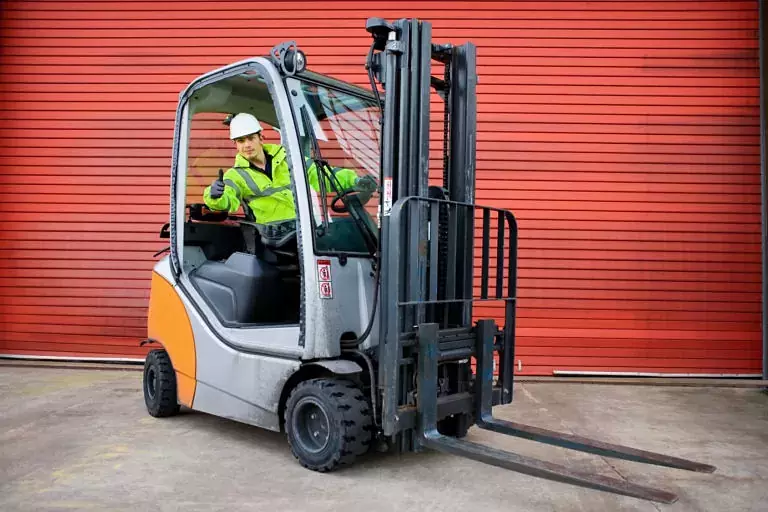 There are many factors to consider when you’re in the market for a forklift for your warehouse or factory operations. One of the most important is which type. Choosing among a diesel, propane, or electric forklift is a decision that must be made based on a number of individualized circumstances, such as the kind of job you’ll be using the forklift for, budget and environmental priorities.
There are many factors to consider when you’re in the market for a forklift for your warehouse or factory operations. One of the most important is which type. Choosing among a diesel, propane, or electric forklift is a decision that must be made based on a number of individualized circumstances, such as the kind of job you’ll be using the forklift for, budget and environmental priorities.
Here are a few of the pros and cons of diesel, propane, and electric forklifts to help you make a smart choice for yourself and your business. And be sure to check our used forklift inventory for all 3 fuel types.
Diesel Forklift
One of the biggest advantages of a diesel-powered forklift is its power. This type of forklift generally has more acceleration and lift speed than other forklifts, helping you finish your job quicker, which can ultimately cut costs. However, you have to consider where you’ll be using the equipment. A diesel forklift is a great option for outside work but, if you plan to use it inside a factory or warehouse, its emissions often require an air purifier to ensure safety, which can run up costs. In terms of repowering, because it runs on diesel, operators just need to be aware of the fuel level and when it’s ready to be gassed up, though that process avoids the lengthy time that is often associated with recharging battery-powered forklifts.
Propane Forklift
Usually used for heating homes, propane can also power forklifts. Such forklifts are becoming increasingly popular, in part because of their lower price tag and versatility, as they can be used both indoors and outside. Propane forklifts have less greenhouse gas emissions carbon content than diesel forklifts, so they’re more environmentally-friendly, which may be a consideration as you weigh the benefits and drawbacks of diesel, propane and electric forklifts. Propane forklifts usually have twice the lifespan of gas-powered forklifts and lower maintenance costs, meaning added savings in the long run.
Electric Forklift
If you’re looking for the greenest equipment possible, electric would be the way to go. These forklifts are all battery-powered, so they have no harmful emissions, healthier for both the operator and the environment. They’re typically quieter and smaller than other types as well, and easier to drive since they don’t use a clutch. While there may be more initial costs with an electric forklift, over time you save money because, with fewer parts, these types of forklifts have much less upkeep than others. And because you’re not paying for frequent refueling, you also can cut out some costs. However, there are drawbacks, specifically that electric forklifts can’t be used outside for extended periods of time in inclement weather and battery charging can take time, which could cut into productivity.
